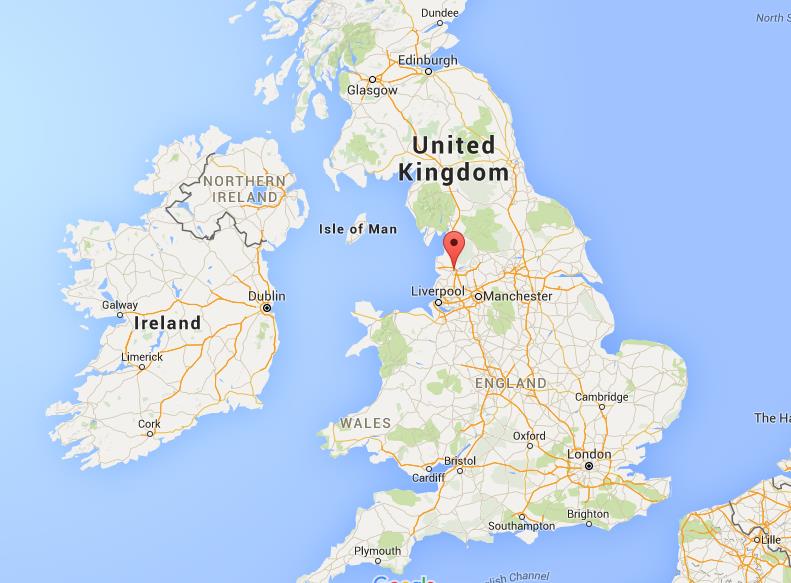Hard Times for These Times
Story-Telling
Most of the people reading posts such as this are aware that earlier this month the IPCC issued an alarming report on climate change that should make society change its ways. Failure to do so could lead to catastrophe and a possible breakdown of civilization within just 20 years. Yet nothing happened; the report changed almost nothing. It was just a blip in the torrent of news that we face every day. Most people continue to go about their normal lives just as before.
Why? Why has a report of such profound importance had such a feeble impact?
I suggest that one answer to this question is that it is a report. In general people are not going to read a document such as this unless they are already vested in the topic under discussion. Furthermore, this particular report is far from easy to read.
The highlight of a report such as this is the Call to Action. Yet here is what that key part of the Executive Summary for Policymakers summary says.
D. Limiting Future Climate Change
D.1 From a physical science perspective, limiting human-induced global warming to a specific level requires limiting cumulative CO2 emissions, reaching at least net zero CO2 emissions, along with strong reductions in other greenhouse gas emissions. Strong, rapid and sustained reductions in CH4 emissions would also limit the warming effect resulting from declining aerosol pollution and would improve air quality.
D.2 Scenarios with low or very low greenhouse gas (GHG) emissions (SSP1-1.9 and SSP1- 2.6) lead within years to discernible effects on greenhouse gas and aerosol concentrations, and air quality, relative to high and very high GHG emissions scenarios (SSP3-7.0 or SSP5-8.5). Under these contrasting scenarios, discernible differences in trends of global surface temperature would begin to emerge from natural variability within around 20 years, and over longer time periods for many other climatic impact-drivers (high confidence)
This "Call to Action" has a reading grade level of 20 (the USA Today newspaper is written at an 8th grade level). This vitally important introduction, which should have had a Mike Tyson impact, is close to being incomprehensible.
(The scientists who wrote the report will respond by saying that it is their job to present the facts accurately, it not their job to communicate with the general public — that is what the politicians need to do. Nevertheless . . .)
The Man on the Clapham Omnibus
Many commentators have written summaries of the IPCC report that convey its message in plain English. This is an important and worthy effort, but neither has their work had much of an impact on the general public. Part of the problem is that there is so much information and mis-information on the Internet it is very difficult to cut through the noise and to provide content that stands out and that catches people’s attention.
But I suggest that the lack of response has deeper causes.
The term ‘The man on the Clapham omnibus’ is used in English law to describe the behavior and actions of an ordinary, reasonable person. (The American term ‘Joe the Plumber’ conveys a similar meaning.) Yet, if one were to actually board a Clapham omnibus and talk to the passengers it is highly unlikely that any of them would have heard of either the IPCC or of its report. Indeed, it is unlikely that they would have a grasp of the seriousness of the climate crisis.
So how do we communicate with our fellow riders? Well, we can start by recognizing the most people do not grasp truths by reading reports, web pages, articles and books — people communicate best by telling stories to one another,(which is why YouTube videos can have such a strong impact). Therefore, if we are to convey the urgency of the climate crisis to our bus riders we need to tell stories.
Unfortunately most people who work in the climate change sphere are technically-oriented; they are not skilled at story-telling.
But there are precedents.
Hard Times
In the first half of the 19th century the industrial revolution in England was underway. Industrialists and engineers had learned how to mine underground coal and were using this one-time gift from nature to literally fuel a new way of living. But working conditions for ordinary people were brutal, and the industrialists, by and large, did not care. Nor did they have any interest in what we now call environmentalism.
No doubt there were many reports written at the time describing the effects of the industrial revolution, but it took story tellers such as Charles Dickens to drive the message home. For example, in the year 1843 Dickens wrote the novel Hard Times for These Times (later shortened to just Hard Times). The story was set in the fictional town of Coketown, based on the real town of Preston in Lancashire.

Here is how he described Coketown.
It was a town of red brick, or of brick that would have been red if the smoke and ashes had allowed it; but, as matters stood it was a town of unnatural red and black . . . It was a town of machinery and tall chimneys, out of which interminable serpents of smoke trailed themselves for ever and ever, and never got uncoiled. It had a black canal in it, and a river that ran purple with ill-smelling dye . . .
But, like the people of our time who have little interest in addressing climate change issues, the industrialists and community leaders of his time saw no need for action.
They [ the industrialists ] were ruined when they were required to send labouring children to school; they were ruined when inspectors were appointed to look into their works; they were ruined, when such inspectors considered it doubtful whether they were quite justified in chopping people up with their machinery; they were utterly undone, when it was hinted that perhaps they need not always make quite so much smoke . . .
When faced with the cost of implementing safety programs and environmental standards the industrialists claimed that such programs were too expensive and unrealistic.
Whenever a Coketowner felt he was ill-used-that is to say, whenever he was not left entirely alone, and it was proposed to hold him accountable for the consequences of any of his acts - he was sure to come out with the awful menace, that he would 'sooner pitch his property into the Atlantic.' This had terrified the Home Secretary within an inch of his life, on several occasions.
However, the Coketowners were so patriotic after all, that they never had pitched their property into the Atlantic yet, but, on the contrary, had been kind enough to take mighty good care of it.
The central point here is not that safety and environmental performance in those days was bad, but that these issues were not considered to be a value. In the ensuing years that attitude, that belief to do with the inherent rightness of safety and environmentalism, has changed. If one were to walk into any industrial facility now the managers would never say, “Safety doesn’t matter”. Their safety performance may be unsatisfactory; nevertheless they would maintain that safety was a moral value in and of itself. And they would be right.
It is that attitude change that is needed now in the climate change world.
Fast forward to the year 2021. We have the following situation:
- The evidence that the climate is radically changing for the worse is to be seen on almost every nightly newscast. Floods, droughts, "heat domes", fires, storms — the list goes on. These events are analogous to the appalling conditions in the factories of Dickens’ time, which were equally visible.
- Many people (including but not limited to industrialists) do not accept that Net Zero programs are a moral value. They would rather "pitch their property into the Atlantic" than accept rules and regulations. They are not necessarily being sinful or immoral, they simply do not see how they can live any other way. They do not perceive the climate crisis as being a moral crisis, so they do not feel obliged to take action.
- The reports from organizations such as the IPCC provide the necessary foundation of research and analysis, but their impact on the world at large is minimal because they do not tell stories.
With respect to climate change, the most pressing task is not to issue more reports and analysis — the critical challenge is to persuade people that we face a moral crisis. Only then will is there a chance that they will respond and take action. And their actions will be based on the stories that they hear and tell one another.
Copyright © Sutton Technical Books. All Rights Reserved. 2021.
